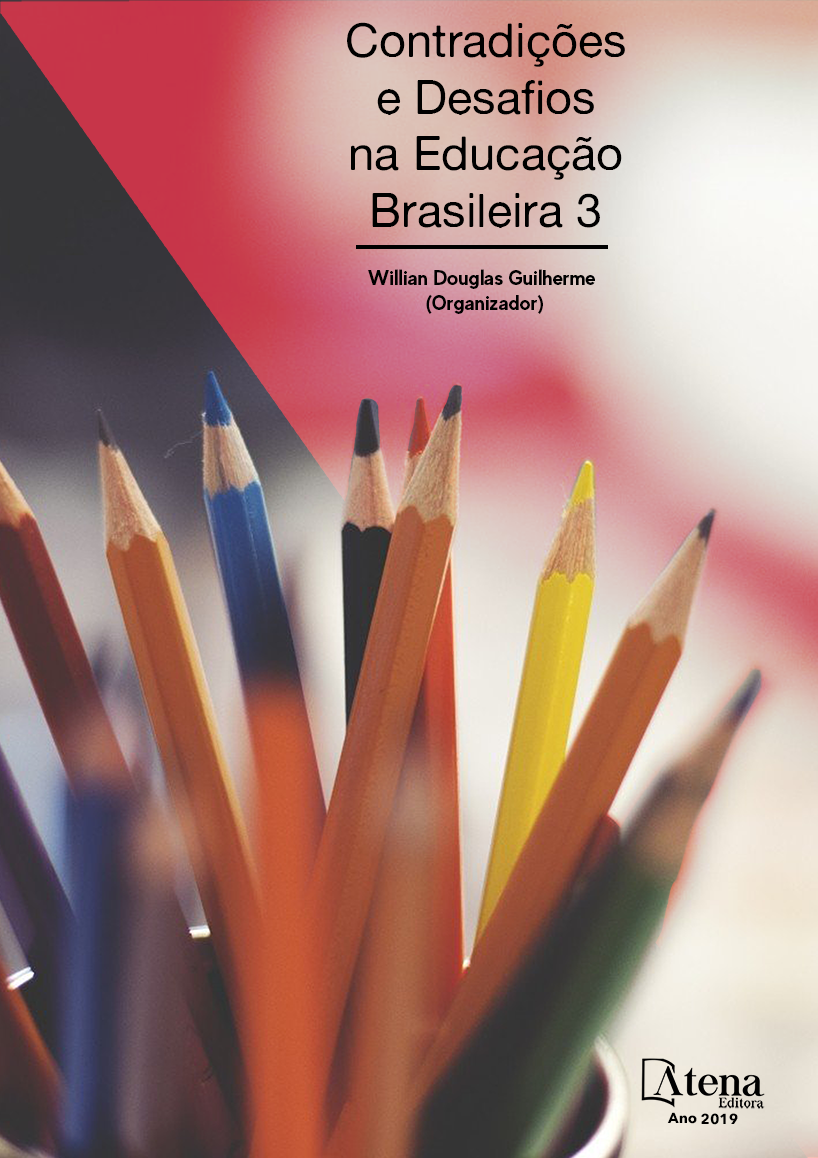
A INTEFERFACE DA EDUCAÇÃO ESPECIAL NA EDUCAÇÃO ESCOLAR INDÍGENA
A interface da Educação Especial
na Educação Escolar Indígena é um tema
atual, porém, pouco abordado no meio
acadêmico nos últimos anos. O objetivo deste
estudo é verificar como vem se constituindo a
interface da Educação Especial na Educação
Escolar Indígena. A pesquisa apresenta os
conceitos de Educação Especial e Educação
Escolar Indígena, destacando a interface
entre as duas áreas. Nesta perspectiva,
utilizou-se o materialismo histórico-dialético
e os fundamentos da Pedagogia Histórico-
Critica, para embasar o desenvolvimento da
referida pesquisa. Foi realizada uma pesquisa
bibliográfica e documental. A pesquisa destaca
os estudos dos autores Sá e Cia (2012), Sá (2012)
e Silva (2013), que abordam sobre a interface
da Educação Especial e da Educação Escolar
Indígena. Os resultados da pesquisa apontam
que essa interface existe e que há alunos com
deficiência intelectual em escolas indígenas,
no entanto, o atendimento educacional
especializado oferecido nas mesmas é apenas
a mera reprodução do modelo não indígena de
atendimento às crianças com deficiência (SILVA,
2013). Sá (2012) constatou que a formação
inicial e continuada, tanto dos professores
indígenas como de áreas remanescentes
de quilombos, não contempla a interface da
Educação Especial com a Educação Escolar
Indígena e Quilombola. Neste sentido, percebese
que a interface da Educação Especial na
Educação Escolar Indígena não está sendo
concretizada na prática, e por mais que esse
direito a escolarização seja garantido em lei,
ainda está sendo efetivado de forma ineficaz.
Foi possível constatar que as pesquisas
relacionadas a “A interface da Educação
Especial na Educação Escolar Indígena” são
reduzidas, o que demonstra a relevância de
ampliação de pesquisas com esta temática.
A INTEFERFACE DA EDUCAÇÃO ESPECIAL NA EDUCAÇÃO ESCOLAR INDÍGENA
-
DOI: 10.22533/at.ed.75019010612
-
Palavras-chave: Interface. Educação Especial. Educação Escolar Indígena.
-
Keywords: Interface. Special education. Indigenous School Education.
-
Abstract:
The interface of Special Education
in Indigenous School Education is a current
theme, but little discussed in academic circles
in recent years. The objective of this study is to
verify how the interface of Special Education
in Indigenous School Education has been
constituted. The research presents the concepts
of Special Education and Indigenous School Education, highlighting the interface
between the two areas. In this perspective, historical-dialectical materialism and the
foundations of Historical-Critical Pedagogy were used to support the development of this
research. A bibliographical and documentary research was carried out. The research
highlights the studies of Sá and Cia (2012), Sá (2012) and Silva (2013), which deal with
the interface of Special Education and Indigenous School Education. The results of the
research indicate that this interface exists and that there are students with intellectual
disabilities in indigenous schools, however, the specialized educational service offered
in them is merely the reproduction of the non-indigenous model of care for children with
disabilities (SILVA, 2013) . Sá (2012) found that the initial and continued training of both
indigenous teachers and remaining quilombos areas does not include the interface of
Special Education with Indigenous and Quilombola School Education. In this sense, it
is perceived that the interface of Special Education in Indigenous School Education is
not being concretized in practice, and although this right to schooling is guaranteed by
law, it is still being ineffective. It was possible to verify that the research related to “The
interface of Special Education in Indigenous School Education” are reduced, which
demonstrates the relevance of expanding research with this theme.
-
Número de páginas: 15
- Maristela Bortolon de Matos
- Sérgio Luiz Lopes
- Edineide Rodrigues dos Santos


